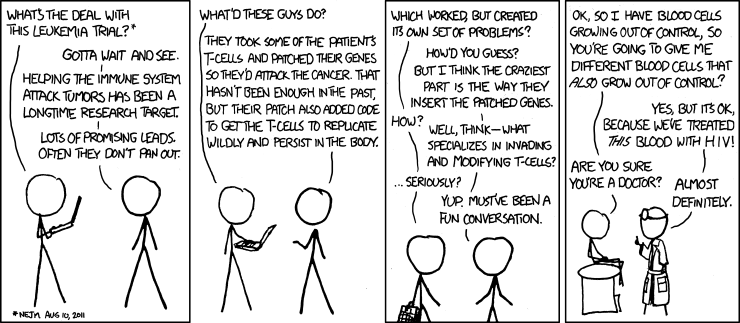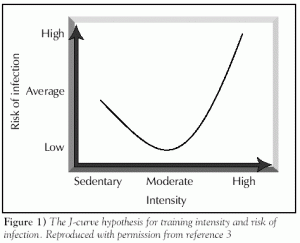
Fungal infection of the bone marrow. Image by euthman.
Nowadays, clinical transplantation is known to save many lives, but not without a catch. Patients have to go through immunosuppressive therapy if the MHC molecules on the graft, or transplanted tissue, do not match their own.
Our bodies are very picky and sensitive. For instance, we are okay with accepting skin grafts from ourselves – this is a type of autograft. However, if we were to be given a skin graft from someone unrelated, this arrangement is not long-lived. We let this allograft stick around for a bit, but ultimately kick it out after 10-13 days. We’ll remember it, too. Like a woman scorned, if this same offensive graft comes again, we boot it out even faster. The T cells living in our bodies as defenders do not take kindly to foreign tissue. Immune responses are mounted as a result, causing transplant rejection. Learn more about the immune response here:

For clinical transplantation to be successful, people have relied on immunosuppressive drugs to inhibit the defensive mechanisms our cells carry out when we encounter foreign molecules. This is problematic because now people are more susceptible to cancer and infections. The issue with transplant rejection is that donor and recipient cells don’t like each other. What do we do when two people don’t get along? We force them to.
Scientists have recently tested a method for transplant recipients to accept mismatched donor organs. In this ongoing trial, patients are exposed to chemotherapy and radiation and injected with enriched donor stem cells, hoping to achieve what is called “chimeric tolerance”. The idea is to make two immune systems work in one body by destroying the host’s first.
This new approach is pretty questionable. Small sample size aside, it is not known whether the enriched cells really made an impact as the study is missing a control group (where patients would presumably undergo treatment without these cells). Furthermore, these cells were not described very clearly. Suppressing the immune system with chemotherapy and radiation is also unnecessarily harmful and risky. Will it be worth it in the end?
References:
1. Murphy, Kenneth P. Janeway’s Immunology (8th ed), p652-664.
2. Steenhuysen, Julie. Immune system tricked to accept donor organs: study. NewsDaily. Accessed March 14, 2012.
3. Garland Science. The Immune Response. Youtube video, accessed March 14, 2012.





























